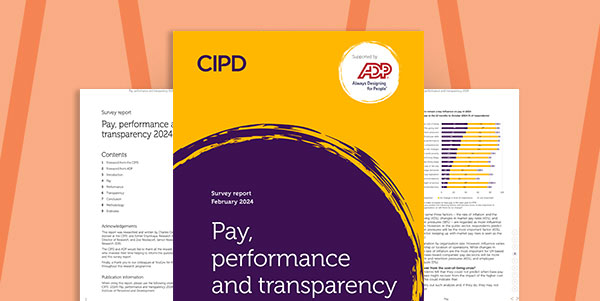Chancellor of the Exchequer Rachel Reeves presented her Autumn Budget on 30th October 2024.
The HM Treasury Autumn Budget 2024 document can be found here.
The below is a summary of the key points that affect PAYE and UK Payroll.
TABLE OF CONTENTS
- Secondary Class 1 NICs (Employer NICs)
- Employment Allowance
- National Living Wage and National Minimum Wage
- Employer NICs relief for veterans
- NICs re-rating 2025-26
- Vehicle Excise Duty (VED) First Year Rates
- 2025-26 Van Benefit Charge, Van Fuel benefit Charge and Car Fuel Benefit Charge
- Company Car Tax rates 2028-29 and 2029-30
- Treatment of double cab pick up vehicles
- Personal Tax Thresholds
- Mandating the reporting of benefits in kind
Secondary Class 1 NICs (Employer NICs)
The Government will increase the rate of employer NICs from 13.8% to 15% from 6 April 2025.
The Secondary Threshold is the point at which employers become liable to pay NICs on employees’ earnings, and is currently set at £9,100 a year. The Government will reduce the Secondary Threshold to £5,000 a year from 6 April 2025 until 6 April 2028, and then increase it by Consumer Price Index (CPI) thereafter.
Employment Allowance
Employment Allowance currently allows businesses with employer NICs bills of £100,000 or less in the previous tax year to deduct £5,000 from their employer NICs bill. The Government will increase the Employment Allowance from £5,000 to £10,500, and remove the £100,000 threshold for eligibility, expanding this to all eligible employers with employer NICs bills from 6 April 2025.
National Living Wage and National Minimum Wage
The National Living Wage (NLW) will increase by 6.7% to £12.21 per hour from April 2025. This represents an increase of £1,400 to the annual earnings of a full-time worker on the NLW and is expected to benefit over 3 million low paid workers across the UK.
Over time, the Government intends to create a single adult wage rate, and therefore also asked the Low Pay Commission (LPC) to recommend a minimum wage for 18-20 year olds that would begin to close the gap with the main NLW rate, eventually giving them the same wage for the same day’s work. In accepting the recommendation from the LPC, from April 2025, the National Minimum Wage (NMW) for 18-20 year olds will become £10.00 per hour, an increase of 16.3%, the largest ever increase in both cash and percentage terms. This means a boost to annual earnings of over £2,500 for nearly 200,000 18-20 year olds across the UK.
The Government is also increasing the minimum wages for Under 18s and Apprentices to £7.55 per hour, and the Accommodation Offset rate will increase to £10.66 a day.
Employer NICs relief for veterans
The Government is extending the employer NICs relief for employers hiring qualifying veterans for a further year from 6 April 2025 until 5 April 2026. This means that businesses will continue to pay no employer NICs up to annual earnings of the Veterans Upper Secondary Threshold of £50,270 for the first year of a veteran’s employment in a civilian role.
NICs re-rating 2025-26
The Lower Earnings Limit (LEL) will be £6,500 per annum (£125 per week).
Vehicle Excise Duty (VED) First Year Rates
The government will change the VED First Year Rates for new cars registered on or after 1 April 2025 to strengthen incentives to purchase zero emission and electric cars, by widening the differentials between zero emission, hybrid and internal combustion engine (ICE) cars.
- Zero emission cars will pay the lowest first year rate at £10 until 2029-30.
- Rates for cars emitting 1-50 g/km of CO2, including hybrid vehicles, will increase to £110 for 2025-26.
- Rates for cars emitting 51-75 g/km of CO2, including hybrid vehicles, will increase to £130 for 2025-26.
- All other rates for cars emitting 76 g/km of CO2 and above will double from their current level for 2025-26.
2025-26 Van Benefit Charge, Van Fuel benefit Charge and Car Fuel Benefit Charge
The government will uprate the Van Benefit Charge and Car and Van Fuel Benefit Charges by CPI from 6 April 2025.
Company Car Tax rates 2028-29 and 2029-30
Company Car Tax rates 2028-29 and 2029-30 – The government is setting rates for Company Car Tax (CCT) for 2028-2029 and 2029-30 to provide long term certainty for taxpayers and industry. CCT rates will continue to strongly incentivise the take-up of electric vehicles, while rates for hybrid vehicles will be increased to align more closely with rates for internal combustion engine (ICE) vehicles, to focus support on electric vehicles.
- Appropriate Percentages (APs) for zero emission and electric vehicles will increase by 2 percentage points per year in 2028-29 and 2029-30, rising to an AP of 9% in 2029-30.
- APs for cars with emissions of 1 – 50 g of CO2 per kilometre, including hybrid vehicles, will rise to 18% in 2028-29 and 19% in 2029-30.
- APs for all other vehicle bands will increase by 1 percentage point per year in 2028-29 and 2029-30. The maximum AP will also increase by 1 percentage point per year to 38% for 2028-2029 and 39% for 2029-2030. This means for vehicle bands with emissions of 51 g of CO2 per kilometre and over, APs will increase to 19% – 38% in 2028-29 and 20% – 39% in 2029-30.
Treatment of double cab pick up vehicles
Following a Court of Appeal judgement, the government will treat double cab pick-up vehicles (DCPUs) with a payload of one tonne or more as cars for certain tax purposes. From 1 April 2025 for Corporation Tax, and 6 April 2025 for income tax, DCPUs will be treated as cars for the purposes of capital allowances, benefits in kind, and some deductions from business profits. The existing capital allowances treatment will apply to those who purchase DCPUs before April 2025. Transitional benefit in kind arrangements will apply for employers that have purchased, leased, or ordered a DCPU before 6 April 2025. They will be able to use the previous treatment, until the earlier of disposal, lease expiry, or 5 April 2029.
Personal Tax Thresholds
The government will not extend the current freeze to income tax and National Insurance contributions thresholds. From April 2028, these personal tax thresholds will be uprated in line with inflation.
Mandating the reporting of benefits in kind
Confirming plans to mandate the reporting of benefits in kind via payroll software from April 2026 – the Government confirms that the use of payroll software to report and pay tax on benefits in kind will become mandatory, in phases, from April 2026. This will apply to income tax and Class 1A National Insurance contributions (NICs).




